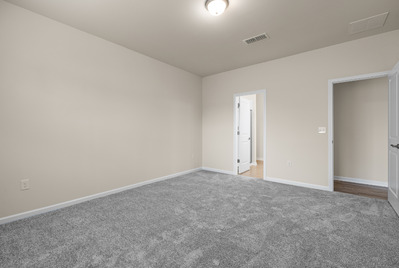Why you should consider buying a home that needs renovation

If you’re a first-time buyer or a home-owner looking to move somewhere cheaper, you might be considering a house that needs renovating. If so then you’re not alone; according to Rightmove, homes in need of renovation are the most in demand among buyers.
Whether you’re a first-time buyer, a homeowner looking to size up without too much of a price tag, or an investor looking to generate profit, there are lots of reasons you might want to buy a renovation property.
What advantages are there to buying a fixer upper?
Lower price
The most obvious reason for buying property that needs renovating is the price. Properties in need of renovation are £29,000 cheaper than the national average. If you’re a first-time buyer struggling to afford a home in your area, or want to move up the property ladder without too much of a jump in cost, buying a fixer upper.
Customisation
While not a completely blank slate, houses that need renovating give you the opportunity to craft your dream home. You’ll have the freedom to create the home you’ve always wanted, whether it’s carpeting the living room floor or installing a bay window in your bedroom. You’re free to personalise as much as you want to and can fit the home to suit your needs.
Potential for profit
Purchasing a property that needs work can be an excellent investment opportunity, especially if you can secure the property for a lower price. With some smart renovation work, you can significantly increase the value of your property and sell on for a much higher price than what you bought it for.
What should you look for in a home that needs renovation?
This entirely depends on you; what your budget is, what your timeline is like, whether you want to sell your home or keep it long-term. The two main things to look out for are:
Condition of the building
When it comes to buying a house that needs renovating, there are lots of types of projects that range widely in terms of commitment of time and money. Homes which just need cosmetic renovations like repainting the walls, putting in new cabinets and even redoing the flooring will cost more upfront, but will be quicker to fix up and you can probably do most of the work yourself. Houses which need structural changes, such as tearing down walls or redoing the electrics, will be more labour intensive and take longer to renovate, but should have a cheaper upfront cost.
Planning permission
There are lots of different ways to renovate and add value to a property, including structural changes that may need planning permission. This will involve a bit of research. Get a consultation from a contractor to see what they think is possible, and see if the property already has planning permission. Don’t forget to check out the neighbours; if multiple houses on the same street visibly have an extension or a loft conversion, it’s likely you’ll be able to as well.
If you’re a first-time buyer:
Your budget will likely be lower as you get started on the property ladder, but don’t necessarily be pulled in by ultra-low-priced fixer uppers. They may have a lower upfront price, but renovation costs will be higher, especially with major structural projects. It’s also important to think about your living situation. If you’re buying your first house you might not have any other housing options, so you will need a house that is at least habitable upon move in.
If you’re looking to move up the property ladder:
You’re likely looking for a bigger space, somewhere with more bedrooms and square footage. Look for houses you think you’ll be able to extend, whether out the back or up through the loft, and see if any planning permission is already available. You should hopefully have more money to play with than a first-time buyer, allowing you to plan bigger projects and more impactful renovations.
If you’re an investor:
You will probably want to target the lowest cost homes that need the most renovation to try and ensure bigger profit margins. Make sure you have a clear plan before going in of what the house needs, how long it will take and how much it will cost. Then research sold houses in the area (try and find similarly renovated houses if you can), and see if your estimated costs would still be low enough to turn a profit.
Interested in buying a renovation project? Check out the homes we currently have for sale and contact your local branch for more information.






